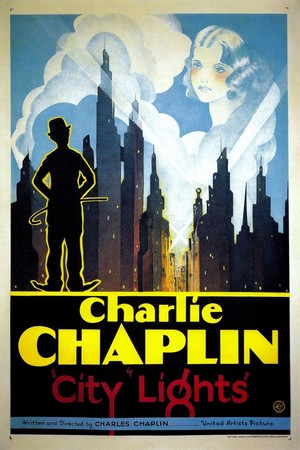
City Lights (1931)

Raiting: ![]() 8,6 /10
8,6 /10
Genre: Comedy
Director: Charles Chaplin
Stars: Charles Chaplin, Virginia Cherrill and Florence Lee
Country: United States
Release date: 1 February 1931
Length: 87 minutes


Raiting: ![]() 8,6 /10
8,6 /10
Genre: Comedy
Director: Charles Chaplin
Stars: Charles Chaplin, Virginia Cherrill and Florence Lee
Country: United States
Release date: 1 February 1931
Length: 87 minutes